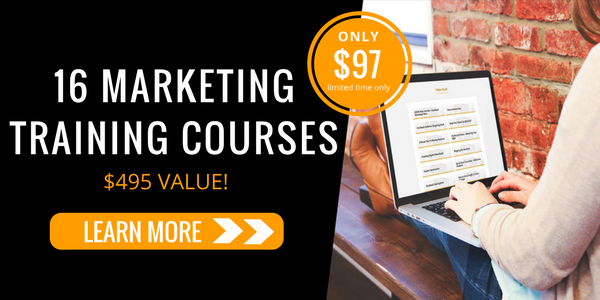Effective Call-to-Action Tips to Boost Your Conversion Rate
Grabbing attention is one thing, retaining it is another and converting it into business is something else altogether. If you’ve opted for the kind of loud marketing that’s trending on the web these days, grabbing attention could be easy. But would this strategy help you to grow your business or would you just increasingly get marked as spam? Read further to understand where you may be going wrong with your call-to-action techniques and how you can possibly get it right.
First things First, What is Call-to-action?
In the marketing lingo, call-to-action refers to the action you intend your visitor to take once they reach your landing page or website. The most common example that you may have come across on many websites is ‘Buy Now!’ Every industry has its own industry related messaging or phrasings that their prospective customers will respond better to. Having stated that, the call-to-action tips that are given below are quite generic in nature and can be potentially valuable across industries.
Tip 1: Always Use a Verb
A recent study conducted by Moz proves our point here. Their findings suggests that Adverbs and Adjectives are among the most unpopular choices for a call-to-action. In fact they are known to cause more harm than good. Nouns fared moderately well but Verbs emerged as a clear winner.
A description line generally has a limit of 35 characters which implies that you don’t have much space to put across your point. This requires us to be concise and clear with our call-to-action. So, whatever it is you wish your visitor to do, specify it clearly in your call-to-action.Being vague with your CTA will just frustrate your potential lead and frustration can never be good. Using words like ‘Submit’ or ‘Read More’ are instant turn-offs and visitors may not fall for that bait.
Related: 7 Day Marketing Plan For You To Customize
As we mentioned above different industries have different verbs for their call-to-action. An e-commerce website may use words like ‘Order’ or ‘Shop’ and those who wish to seek more information from the visitor may go for ‘Find out more’ or ‘Fill a Form’.
Note: Don’t let the 35 character limit restrict your creativity. There’s always a scope to use better words, words that can strike a chord with your target audience. For instance assume that you’re a digital marketing agency and you wish to promote your latest opinions and insights. Using words like ‘Find our latest white paper here’ may not go down well with your readers and a better choice for the same could be ‘get our latest white paper today!’ You will be surprised to know how drastically your CTR (Click-through-rate) improves with better usage of words.
Tip 2: Reflect Your Enthusiasm in the Words
Words are all that you have to lure the reader beyond the screen. Choosing them wisely in a way that it brings out the impulse of a reader can work wonders for your business. For a second, consider yourself to be a visitor on a travel website, looking at the details of a trip you’re tempted to book, would you be more impressed with the regular run-of-the-mill ‘Book Now’ or something personalised like ‘Book your dream vacation now!’?
If you’ve come up with a special deal for your customers, let them know. Use words like ‘Book now and get 25% off!’ instead of going with ‘Click here to avail our new offer’. Online offers have gained a bad reputation so when you have a substantial deal to offer to your customers, state it explicitly.
Note: Some of the best call-to-action buttons that we have come across have an exclamation mark. It may sound inconsequential but it works well to reflect enthusiasm.
Tip 3: Give Them a Reason to Click
What are you offering them? Is it something that they do not have already? Will it make things easier for them? Will it help them to save money or lose weight? You need to define your unique selling point or USP as it is commonly known. It may sound like the old principle ‘a good product sells itself’ but it couldn’t be any truer. If what you are offering to your visitors is unique in itself, a carefully laid out call-to-action will take care of acquiring new leads for you.
Note: It helps if your call-to-action specifies what your visitor will gain by taking the action. Consider the following call-to-action ‘contact us today to get a free quote’. With such a CTA you let the visitor know that upon taking the action (contact us) they will be entitled to a free quote. This also gives them a reason to trust you as you’re giving them something you’re not obliged to offer.
Tip 4: Let Them Know What They’re Missing
One of the most successful tactics of making a visitor click on that call-to-action button is offering them an opportunity that may or may not come around later. When people sense that they will miss out on a good deal, there are more likely to take action. This tactic is so popular that it even has an abbreviation and it is known as FOMO, fear of missing out.
A common way to incorporate FOMO in your CTA is throwing the temptation of a promotion or sale to your visitors. Sounds like something you’ve fallen for before? Think of all the times you bought a 6-month gym membership. You knew you wouldn’t go after the first week, even the gym guys knew you wouldn’t. But you still fell for it, didn’t you?
Note: Converting the visitor by making him fall for the call-to-action is what matters at the end of the day. Adopt any method which makes them click, whether it is by provoking enthusiasm in them or FOMO.
Tip 5: Customise for Different Devices
We have a variety of interfaces to care for now, with laptop, tablet and mobile devices in the picture. While the user interface roughly remains the same for a desktop and tablet, things change when visitors hold a smartphone in their hands.
A reason why laptop and tablet interfaces are approximately the same is that they are used in similar situations. They can only be accessed by users in their leisure time but the same cannot be said about mobile devices. It may have happened with you. You’re walking down the street, come across this advertisement, instantly take out that phone from your pocket and look it up on the internet.
The number of people looking up for information on mobile devices is too large to overlook and this makes it necessary for you to take the leap and make the change. Mobile users tend to have a behaviour that is quite different from those surfing information on the laptop or tablet. It is also a good idea to incorporate the facility of calling on the call-to-action tab as they could be inclined to make a phone enquiry as well.
Note: The latest features of Google allow you to set a preference for mobile phones. By setting this preference your ad will only appear on mobile searches and this allows you to customise your CTA accordingly to generate more phone calls. Another feature places a ‘call’ button alongside your ad. It’s highly recommended that you use these features to your advantage as you never know where your next lead comes from.
Tip 6: Unleash the Creativity Inside You
There’s not a single tried and tested technique that can be applied uniformly across industries. While the standard CTA strategies have higher probability of achieving better CTR, you can never tell whether a different strategy will work or not until you have tested it for its effectiveness. Pay per Click revolves around trial and error which is both its biggest advantage and biggest frustration. Biggest frustration because your first strategy may not exactly hit the spot and biggest advantage because it encourages development of different strategies.
For this reason we advise you to experiment with your PPC strategies, read this article to see how you can improve them and revise them if necessary. Do not get disheartened if your present strategy doesn’t work, make it more creative, add some colours to it and you never know what makes it click this time. As we mentioned above there’s always the scope to be a little creative and you should keep those creative juices flowing in your mind.
Note: Ditch the stereotype and add your own spices to the call-to-action. ‘A great deal now at your fingertip’ is much better than the mundane ‘Check out this exclusive deal’. ‘Begin your exotic journey with us’ sounds a lot more interesting than ‘Book Now’.
Last but not the least, experiment with your language. There’s no grammar test you’re going to be evaluated for on the internet. There’s no Shakespeare beyond the screen judging you on your choice of words. If you’re able to come up with something off beat and out of the box, include it in the CTA. So keep trying, keep experimenting, you never know what clicks!








